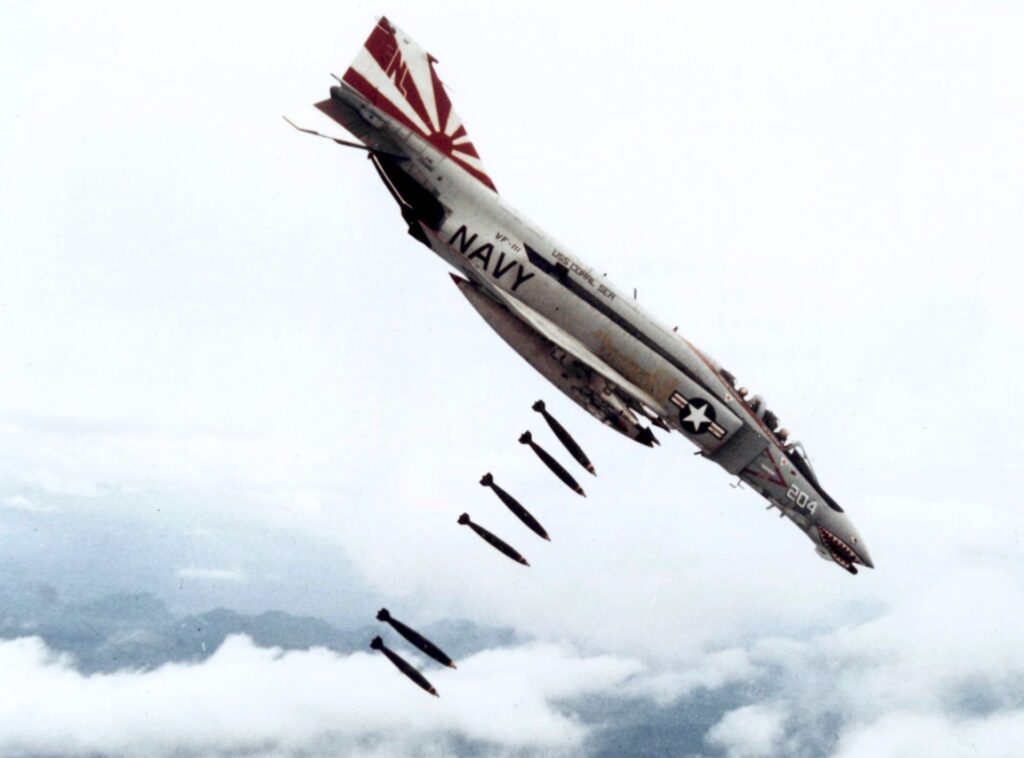It is 13 September, 1964. President Lyndon Johnson, who succeeded the assassinated President Kennedy on 22 November, 1963, is seeking election to a full term. Johnson has a huge poll lead over his Republican opponent, Arizona Senator Barry Goldwater, but there are ominous signs of trouble in Vietnam. As American Ambassador and former Chairman of the Joint Chiefs Maxwell Taylor is flying from the United States to Saigon, South Vietnamese Generals Lam Van Phat and Duong Van Duc attempt to overthrow the military junta led by General Khanh. The rebellious generals deploy troops to key areas of Saigon, and the announce over the national radio network that General Khanh has been overthrown. With the assistance of the Americans in country, Khanh is able to rally a sufficient amount of loyal troops, and the coup collapses without any loss of life.
This is the third coup or attempted coup in South Vietnam in less than a year. On 1 November, 1963, a group of South Vietnamese generals overthrew and murdered President Ngo Dinh Diem. General Minh, who led that coup, maintained control of the government for a little over two months before he was overthrown in a bloodless coup led by General Khanh. Now two more generals have tried to overthrow Khanh’s government, creating even greater turmoil as South Vietnam struggles to contain the growing Viet Cong insurgency.
What if President Johnson had decided South Vietnam wasn’t worth “saving”?
This would have been a tough decision for any American president, but especially for Lyndon Johnson. Foreign affairs had never interested him when he was Senate Majority Leader, but the one thing he remembered from his time in the Senate during the 1950s were the constant attacks his party had endured from Republican Senator Joseph McCarthy. “Soft on Communism” had given the Republicans the White House and both houses of Congress in the 1952 general election, and President Kennedy had barely won election to the White House in the 1960 election. Johnson was determined not to be perceived as weak on Communist aggression by Barry Goldwater, who had electrified the Republican Convention in his nomination acceptance speech when he said:
“Extremism in defense of liberty is no vice, and moderation in pursuit of justice is no virtue.”
Yet, Johnson could have ended American defense of South Vietnam by simply pointing out that there wasn’t much liberty or democracy in Saigon. On 7 August, 1964, Congress passed the Gulf of Tonkin resolution, authorizing President Johnson to use force to deter Communist aggression in South Vietnam. On that same day General Khanh, in response to protests by Buddhists, declared a state of emergency, giving the police the ability to search properties under any circumstances. He also banned all protests, imposed press censorship, and empowered the police to detain anyone who “posed a threat to national security.” These decrees from a military dictator in South Vietnam were nearly mirror images of how the Communist government of North Vietnam operated. Additionally, three coups/attempted coups in the space of ten months should have been prima facie evidence that the leaders in Saigon were more interested in fighting each other than they were in fighting the Viet Cong or the North Vietnamese Army, which was beginning its infiltration of the South as the government in Saigon teetered from one junta to the next.
Johnson didn’t reverse course, pushing Vietnam to the back burner as the presidential campaign intensified. Vietnam didn’t turn into an October surprise, and Johnson defeated Goldwater in a landslide on election day, but by February of 1965 Vietnam was back on Johnson’s front burner. The Viet Cong staged a successful attack on the American base at Pleiku. Secretary of Defense Robert McNamara, Chairman of the Joint Chiefs General Earl Wheeler, Commander of US Forces in Vietnam General William Westmoreland, and Ambassador Maxwell Taylor all advocated for more advisors and a sustained bombing campaign against the North to halt further infiltration of troops and material. On 19 February, 1965, General Lam Van Phat executed a successful coup that overthrew General Khanh’s junta. When National Security Advisor McGeorge Bundy informed President Johnson of the coup, Johnson snapped:
“I’m gettin’ a little sick and tired of this coup shit!”
Little did Johnson realize that he was about to be up to his eyeballs in shit as the next three years progressed.
